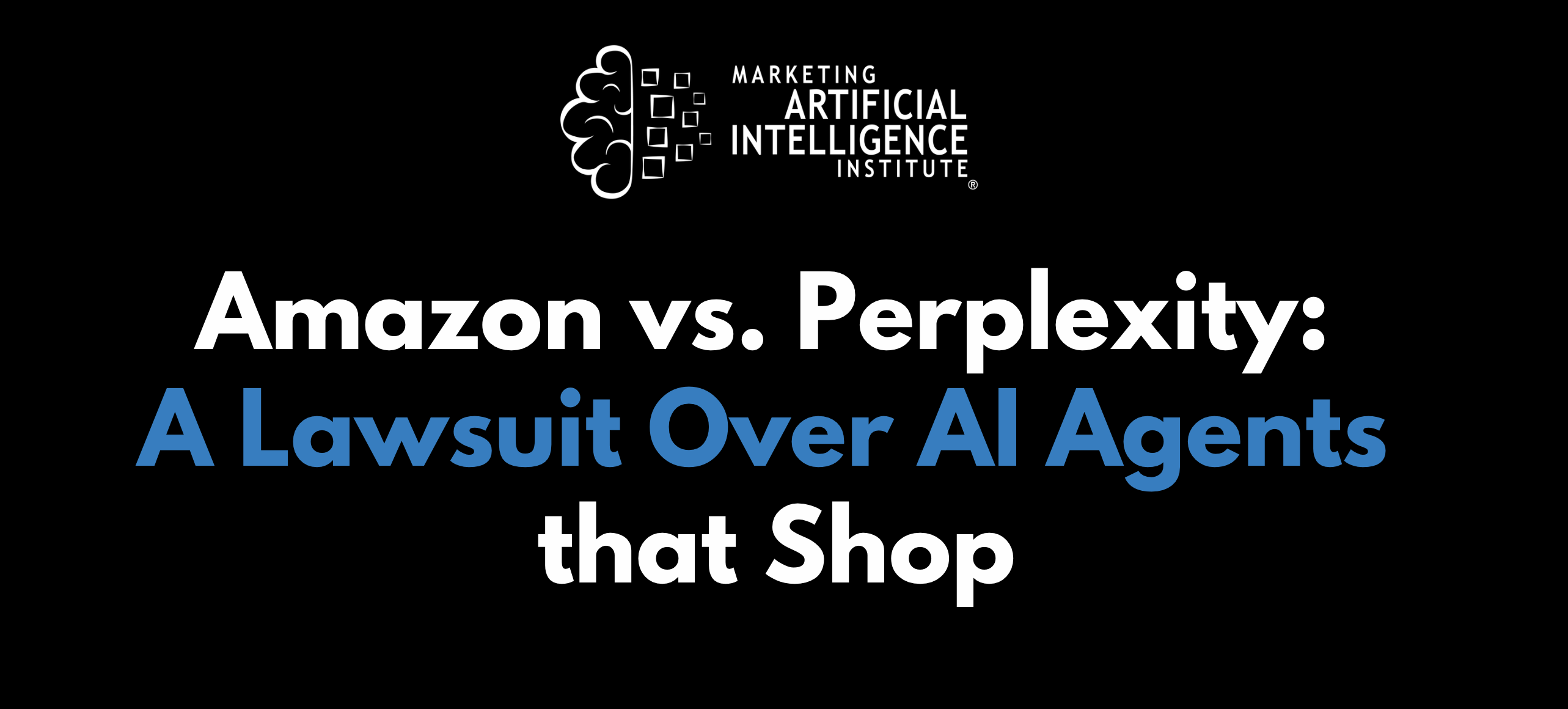Amazon has filed a federal lawsuit against Perplexity AI, accusing the startup of illegally using its new AI agent, Comet, to shop on behalf of users in violation of Amazon's Terms of Service.The lawsuit, first reported by Bloomberg, alleges that Perplexity’s agent disguises itself as a normal Chrome browser user to log into Amazon accounts, search for products, and complete purchases automatically.
Amazon claims this degrades the shopping experience and creates privacy risks. Perplexity’s CEO, Aravind Srinivas, fired back, calling the suit a “bully tactic to suppress competition” and arguing that AI agents should have the same rights as human users.
But this legal battle is just the opening skirmish in a much larger conflict over the future of e-commerce, and one that will soon impact every business. To understand what's really at stake, I turned to SmarterX and Marketing AI Institute founder and CEO Paul Roetzer to discuss this on Episode 179 of The Artificial Intelligence Show.
A Questionable Defense
Perplexity paints itself as the victim of a corporate bully, but Roetzer is skeptical of their "innovation" defense, given the company's past ethical choices.
“I have a hard time feeling empathy for Perplexity who knowingly abuses rules in Terms of Use,” he says. “You guys have made an entire company worth billions of dollars by stealing from people. This is what you do.”
Roetzer sees this as part of a broader techno-optimist “accelerate-at-all-cost" position common in AI development. This is where companies feel justified in breaking existing rules, such as scraping copyrighted data or violating terms of service, because they believe they are building the future.
AI Agents are the Future
This lawsuit isn't really about stopping AI agents; it's about who gets to define the rules for how they operate. And Amazon might be putting up a futile fight. AI agents are the future of shopping, and Amazon has to adjust.
Amazon CEO Andy Jassy said on a recent earnings call that while he finds the current AI agent customer experience "not good," he thinks the company will find ways to partner with agent-builders.
Widespread Impact for E-Commerce
The true significance of this lawsuit is what it signals for every other business. Roetzer identifies this as the beginning of a major trend: "agent-to-agent communications and commerce."
In the near future, AI agents, acting on behalf of consumers, will interact with your brand in place of humans.
“Businesses must solve for consumers using agents to gather information, engage with brands, and make purchases,” Roetzer says. “This may alter how we design user experiences on the web and in apps, and it could rapidly evolve marketing, sales, and customer experience strategy.”
This problem won’t be specific to Amazon. Soon, agents may be interacting with your company’s chatbot, scraping your site for information, and challenging your ability to track analytics and user behavior.
Roetzer predicts this could happen as soon as the 2026 holiday season.
Mike Kaput
Mike Kaput is the Chief Content Officer at SmarterX and a leading voice on the application of AI in business. He is the co-author of Marketing Artificial Intelligence and co-host of The Artificial Intelligence Show podcast.


